Text
Hello and happy Pride Month everyone ! 🏳️🌈
As promised, I am going to talk about an important lesbian in history everyday. And this first post is about one of my favourite :
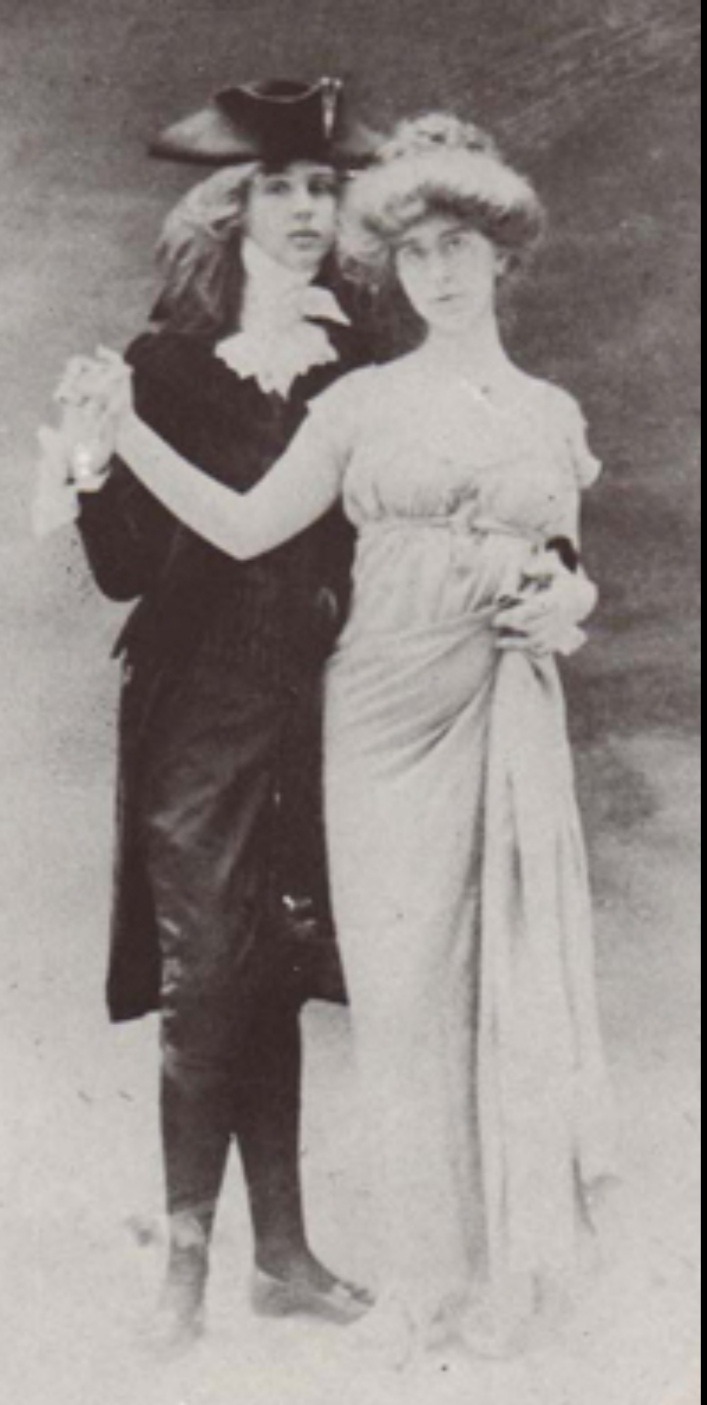
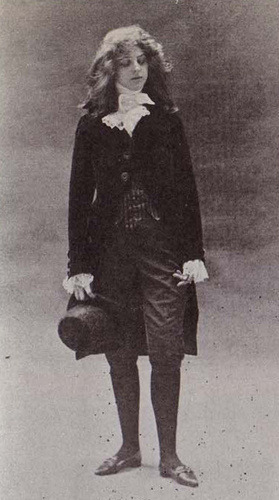
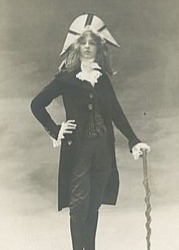
Renée Vivien !
I have seen some people talk about her here but she clearly isn’t as famous as she should be, and she deserves way more recognition!
Renée Vivien, whose birth name is Pauline Mary Tam, was a British writer poetess, who wrote her poetry (and most of her works) in french ; born in 1877, she died in 1909, at only 32 years old.
Renée was openly a lesbian, and she never tried to hide it despite the society she lived in being extremely homophobic and considering homosexuality as an illness. In her poetry, she mentions her love for women a lot, and wrote a lot of love poems for several of her lovers. This even earned her the nickname “Sappho 1900”. ("Sappho 1900, Sappho cent pour cent").
Of Sappho, she was by the way a huge fan : in 1903, she published the work "Sappho", in which the poet's Greek texts are followed by a French translation, as well as verses by Renée Vivien, which thus "completes" the remaining fragments of Sappho's writings. This collection greatly helped to anchor Sappho's work and her identity as a lesbian woman in our culture.
Her work consists of :
Twelve collections of poems, totalling more than 500 poems
Several translations of Greek poetesses (including Sappho)
Seven books of prose
Around ten novels (written under various pseudonyms)
A posthumously published collection of short Gothic tales (written in English this time)
A book about Anne Boleyn's life
It is also possible to read her diary and the letters she exchanged with her lovers, friends and other personalities of her time, including Natalie Clifford Barney, Colette, Kérimé Turkhan Pacha and others.
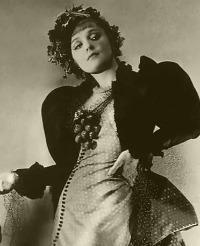
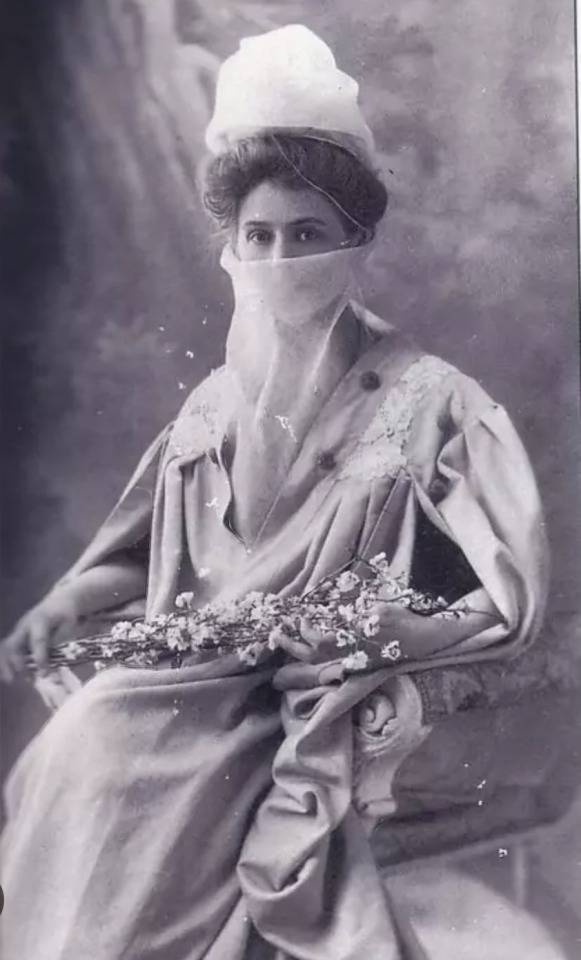
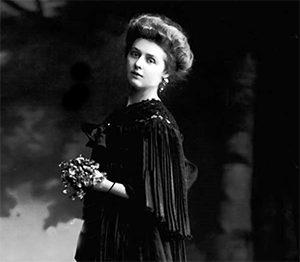
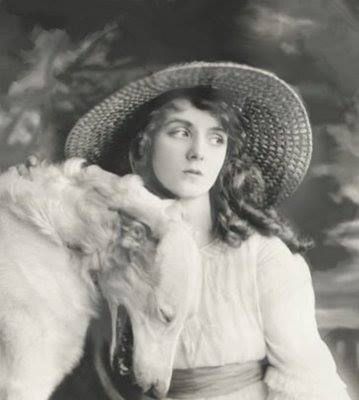
Pauline studied both in Paris and in London, then decided, once she came of age, to come and settle in Paris. She published her first collection,"Études et Préludes" in 1901, under the pseudonym R.Vivien. This pseudonym later became René Vivien (the male version of Renée) then Renée Vivien, the name under which she will be remembered. We can easily guess that she first chose these neutral then masculine pseudonyms to be able to write and be published despite the misogyny and homophobia of her time, especially given the themes exploited in her writings.
Sadness, death, ancient Greece, love, despair, solitude and love are the most recurrent themes in Renée's poems. There is actually a poetry prize in her name, the Prix Renée Vivien, which rewards poets whose themes and style are close to those of Renée Vivien.
Among Renée's best-known lovers is Natalie Clifford Barney, a famous writer and poet, with whom she had a relationship for several years before leaving her, tired of her infidelities. It is said that Natalie never accepted this breakup and tried until the end to get her back by all means, sending her love letters even years after.
Renée then had a relationship of more than six years with the rich Baroness Hélène de Zuylen, married and mother of two children, with whom she traveled extensively around the world and collaborated on the writing of several works (under the collective pseudonym Paule Riversdale). In a letter to her friend Jean Charles-Brun, Renée admitted that she considered herself married to Hélène.
While still living with the Baroness, she received a letter from a mysterious admirer, Kérimé Turkhan Pacha. What followed was an intense four-year epistolary relationship, interspersed with brief clandestine meetings. In 1908, however, Kérimé, the wife of a Turkish diplomat, put an end to their relationship when she had to follow her husband to St. Petersburg. This break-up probably contributed to Renée's tragic end.
The writer was in deep psychological distress, which only worsened from 1908 onwards. Alcoholic and suicidal, she began refusing to eat properly, and attempted suicide with laudanum. After this failed suicide attempt, she contracted pleurisy, which left her very weak, and then chronic gastritis due to her alcohol abuse. She gradually fell into anorexia, and, with her limbs paralyzed by multiple neuritis, she died on November 18, 1909, aged just 32. Her death was attributed to "pulmonary congestion", probably due to pneumonia complicated by alcohol and anorexia.
After her death, intellectuals, artists and newspapers, out of lesbophobia, tried to make her forgotten by the literary world, describing her as a woman of evil and damnation, perverse and cruel, going so far as to invent for her a life of crime, debauchery, orgies with married women, violence and cocaine consumption.
Today, Renée Vivien's name is no longer known to the general public, and is never mentioned alongside those of great ans famous poets such as Arthur Rimbaud or Charles Baudelaire, despite her gorgeous poetry, her immense talent and fascinating work.
She's personally my favourite, and not only because she was a lesbian. Her poetry is the most beautiful, interesting and deep poetry I have ever seen. She deserves to be as famous as Victor Hugo or Paul Eluard (and even more famous, in my opinion lol).
Here is one of her poems, with its english translation :
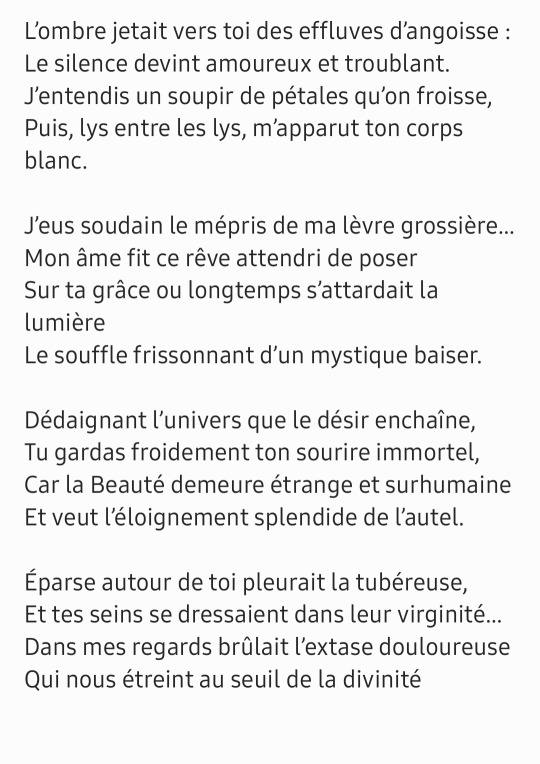
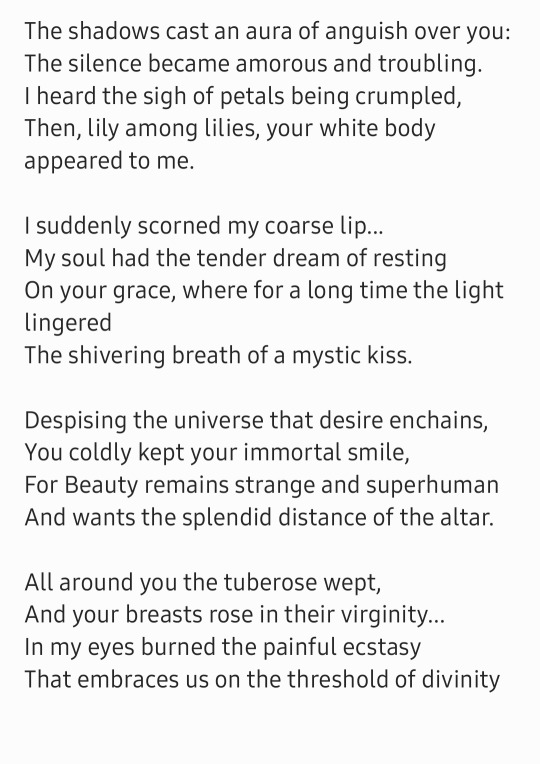
A link to some of her poems (in french but you can use a translator) ;
And two links with some of her poems translated into english : 1 and 2.
You should totally buy and read her books and poems, I have them and they're amazing!!! I'll post more translations of her poems in the future for those interested.
Anyway, thanks for reading and see you tomorrow for the second post!
102 notes
·
View notes
Text
For this 2nd day of Pride Month I decided to talk about a woman I mentionned yesterday in the post about Renée Vivien (that you should absolutely read by the way, Renée Vivien is amazing) :
Natalie Clifford Barney !
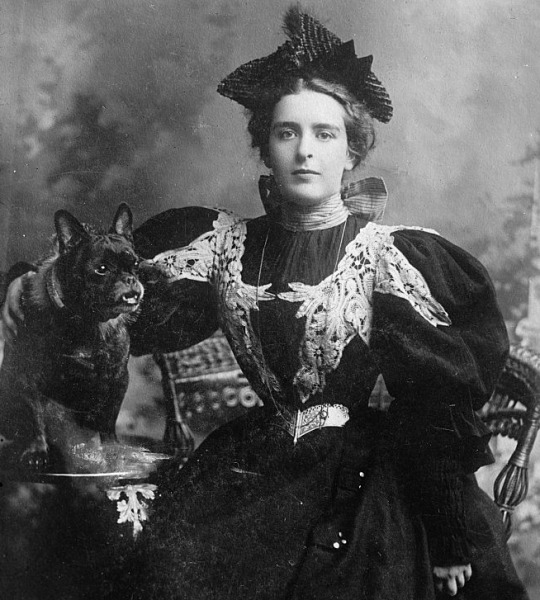
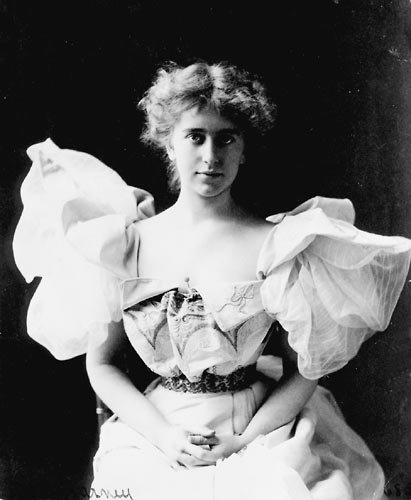
I talked about her to say that she's had a love story with Renée Vivien, but that's not the only thing she's done.
Natalie was born in 1876 in the United States and died in 1972 in Paris, at the age of 95. Writer and poet, she was the first woman to use the word "lesbian" in her writings (in this case a collection of poems, published in 1899), instead of the word "tribade" (it's another word for lesbian in french) or simply "homosexual". The word lesbian back then was even more taboo than it is today, so you can imagine how important this fact was (and still is).
She was also famous for the parties she organised: she held a literary salon which she wanted to turn into the "new Mytilene". She invited the female artists, writers and intellectuals of her time, in response to the all-male Académie Française, and they all spent whole afternoons and evenings in the flat of the wealthy American.
Natalie never tried to hide her homosexuality. As she said in a sentence that quickly became her most famous one,
"Why would anyone blame me for being a lesbian ?"
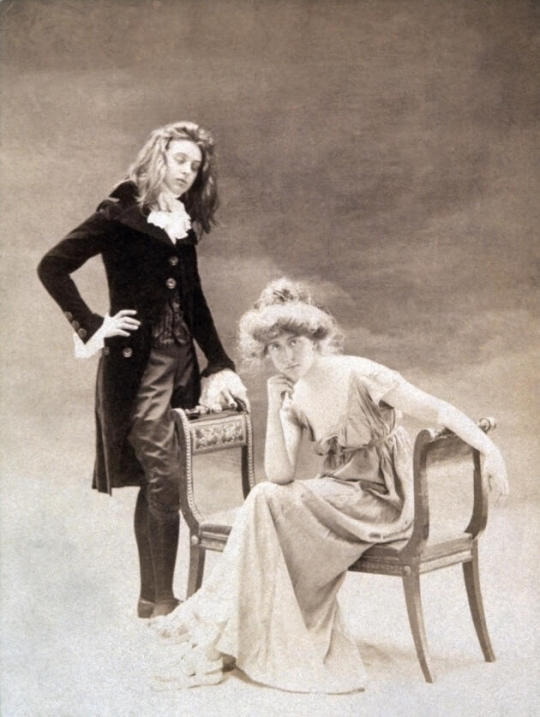
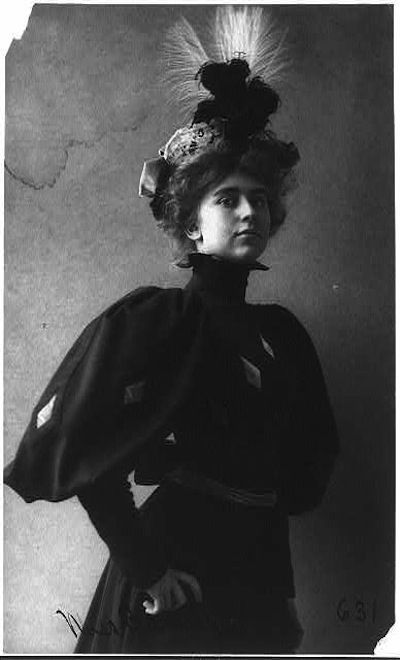
(Yes, that's her with Renée Vivien)
Natalie's mother (a renowned artist) and her tutor awakened her interest in the French language at an early age, and when she was a little older, she was sent to a school in France; thanks to this, she spoke French fluently and without an accent, and developed a soft spot for this country.
Natalie was 12 when she realized she was a lesbian, and decided right away to "live in the open, without hiding from anyone".
Hee first known relationship was with Liane de Pougy, a famous dancer of the time (whom she cheated on with many women). Natalie wrote about this love story in her collection Quelques portraits, sonnets de femmes. ("Some portraits, sonnets of women"). Liane wrote about it in her novel "Idylle sapphique", which so fascinated the French public that it had to be reprinted sixty times in the same year, with people torn between admiration and scandal. The two women eventually parted ways, however, due to Natalie's infidelities and Liane's "debauched lifestyle" (in Natalie's words).
As I said, this book caused a huge scandal. Natalie was forced to return to the United States, where her father burned all her writings he could find, and tried to marry her off. However, she categorically refused to obey him, and faced with her stubbornness, her father gave up, and Natalie returned to Paris, where she had a lot of lovers. Among these lovers, there's Renée Vivien (probably the most important, since Natalie never accepted their breakup and tried to get Renée back until Renée died at 32) Lucie Delarue-Mardrus, Colette, Emma Calvé, Olive Custance, Henriette Roggers and many others.
In 1902, on the death of her father, Natalie Clifford Barney inherited a large fortune and was able to rent a house in Neuilly-sur-Seine, where she gave parties that became the talk of the town.
In 1910, she moved into a house at 20 rue Jacob ; for nearly sixty years, this house was the setting for her famous "Fridays", one of the last influential literary salons. A LOT of famous people went there. Like really. The complete list is on Wikipedia if you're curious, and here's a screenshot with some examples :
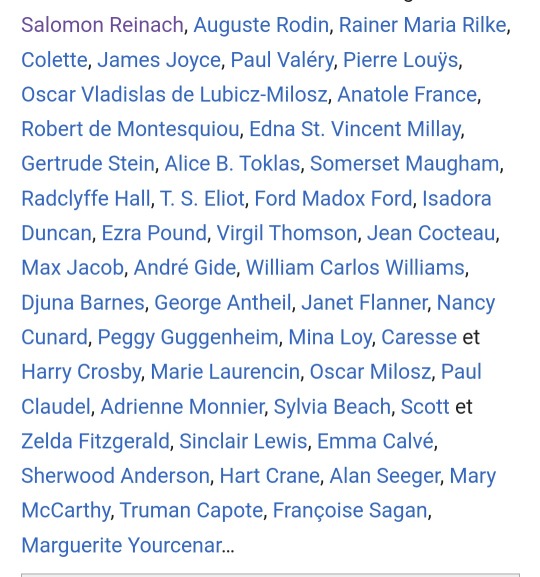
Marie Skłodowska-Curie went there. Albert Einstein went there. Apollinaire and Proust went there. Oscar Wilde went there. That's cazy to me!
She's had other lovers, like Elisabeth de Clermont-Tonnerre, but her greatest love story was with the painter Romaine Brooks, with whom she had a relationship similar to that of a married couple from 1914 to the end of her life. Of course, this didn't stop her from cheating on Romaine with other women: Natalie was known for her infidelities, believing that polygamy was necessary for a couple's survival, although she claimed that this didn't stop her from being deeply in love with Romaine. She cheated on her for example with Oscar Wilde's niece Dolly, and Nadine Huong, whose story I'll tell one day because it's so interesting!
She spent the years of the Second World War in Italy, and later returned to France to find her second home, which she shared with Romaine Brooks, destroyed. In 1949, she reopened her salon (which started to welcome more and more famous actors and actresses on top on everyone else).
Nothing much happened for the rest of his life. She never left Romaine Brooks (despite continuing to have affairs with a host of other women) and died in Paris in 1972, aged 95.
Natalie Clifford Barney's work and life were very important not only for culture itself, but also for the lesbian community. She made a major contribution to lesbian visibility, opened many minds, helped normalize (even if we still have a long way to go) homosexuality and, above all, helped many lesbian women accept themselves, understand that they were not alone and live the life they deserved.
The influence of her works and her salon on culture, literature, cinema, theater and even science is immense and deserves to be recognized. We should be talking about her much more than we are!
Here's some of her poems with an english translation :
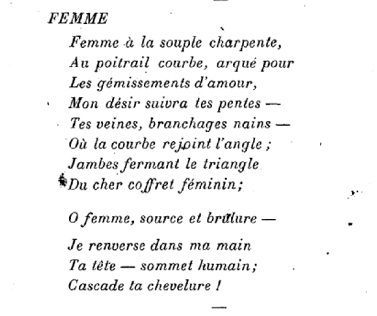
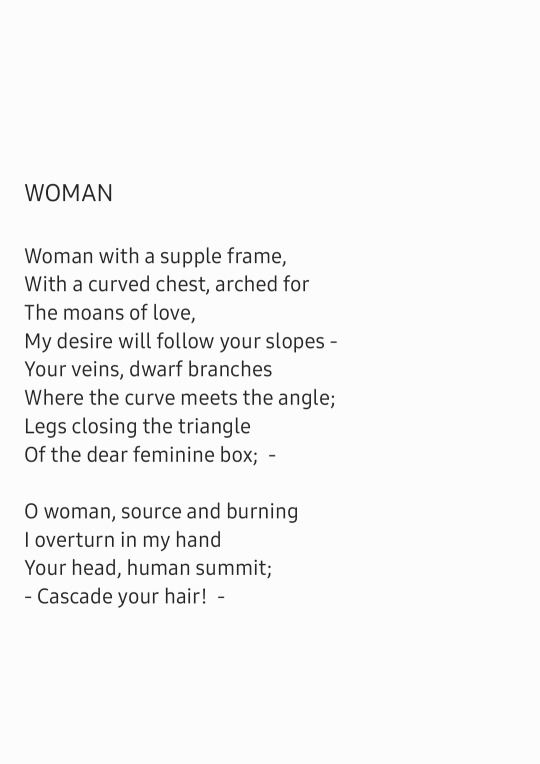
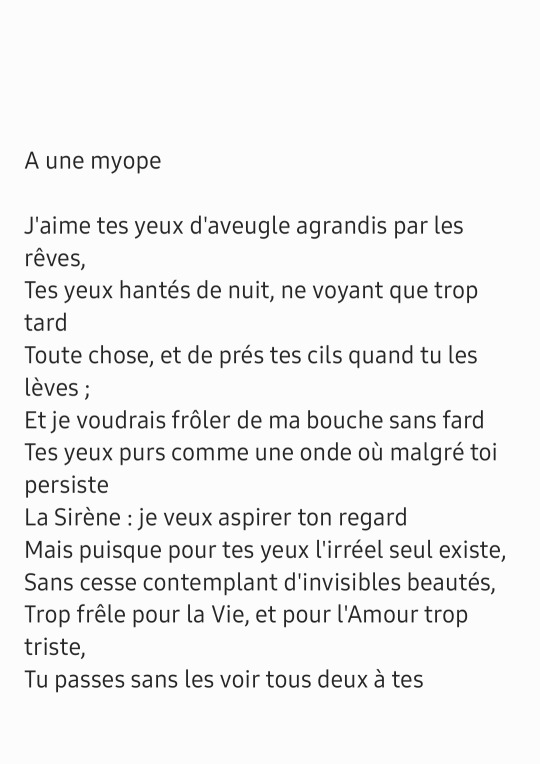
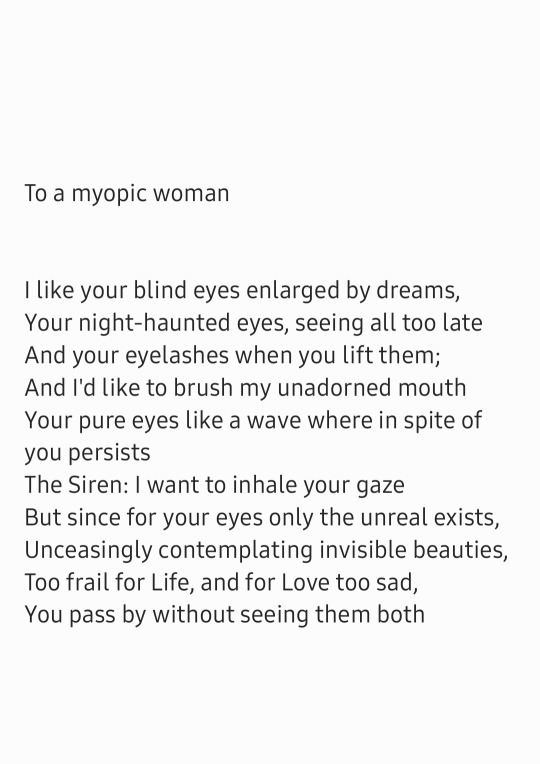
And she's written loads of other stuff that I really recommend you read! She was an interesting woman who wrote interesting things. Look her up on Google and read her writings and her life!
Anyway, that's it! Sorry for posting so late, and see you tomorrow for the 3rd lesbian pride post 🏳️🌈
45 notes
·
View notes
Text



Willow
ᵀʰᵉ ᵀᵒⁿᶦᵍʰᵗ ˢʰᵒʷ ˢᵗᵃʳʳᶦⁿᵍ ᴶᶦᵐᵐʸ ᶠᵃˡˡᵒⁿ
830 notes
·
View notes
Text
For this 2nd day of Pride Month I decided to talk about a woman I mentionned yesterday in the post about Renée Vivien (that you should absolutely read by the way, Renée Vivien is amazing) :
Natalie Clifford Barney !


I talked about her to say that she's had a love story with Renée Vivien, but that's not the only thing she's done.
Natalie was born in 1876 in the United States and died in 1972 in Paris, at the age of 95. Writer and poet, she was the first woman to use the word "lesbian" in her writings (in this case a collection of poems, published in 1899), instead of the word "tribade" (it's another word for lesbian in french) or simply "homosexual". The word lesbian back then was even more taboo than it is today, so you can imagine how important this fact was (and still is).
She was also famous for the parties she organised: she held a literary salon which she wanted to turn into the "new Mytilene". She invited the female artists, writers and intellectuals of her time, in response to the all-male Académie Française, and they all spent whole afternoons and evenings in the flat of the wealthy American.
Natalie never tried to hide her homosexuality. As she said in a sentence that quickly became her most famous one,
"Why would anyone blame me for being a lesbian ?"


(Yes, that's her with Renée Vivien)
Natalie's mother (a renowned artist) and her tutor awakened her interest in the French language at an early age, and when she was a little older, she was sent to a school in France; thanks to this, she spoke French fluently and without an accent, and developed a soft spot for this country.
Natalie was 12 when she realized she was a lesbian, and decided right away to "live in the open, without hiding from anyone".
Hee first known relationship was with Liane de Pougy, a famous dancer of the time (whom she cheated on with many women). Natalie wrote about this love story in her collection Quelques portraits, sonnets de femmes. ("Some portraits, sonnets of women"). Liane wrote about it in her novel "Idylle sapphique", which so fascinated the French public that it had to be reprinted sixty times in the same year, with people torn between admiration and scandal. The two women eventually parted ways, however, due to Natalie's infidelities and Liane's "debauched lifestyle" (in Natalie's words).
As I said, this book caused a huge scandal. Natalie was forced to return to the United States, where her father burned all her writings he could find, and tried to marry her off. However, she categorically refused to obey him, and faced with her stubbornness, her father gave up, and Natalie returned to Paris, where she had a lot of lovers. Among these lovers, there's Renée Vivien (probably the most important, since Natalie never accepted their breakup and tried to get Renée back until Renée died at 32) Lucie Delarue-Mardrus, Colette, Emma Calvé, Olive Custance, Henriette Roggers and many others.
In 1902, on the death of her father, Natalie Clifford Barney inherited a large fortune and was able to rent a house in Neuilly-sur-Seine, where she gave parties that became the talk of the town.
In 1910, she moved into a house at 20 rue Jacob ; for nearly sixty years, this house was the setting for her famous "Fridays", one of the last influential literary salons. A LOT of famous people went there. Like really. The complete list is on Wikipedia if you're curious, and here's a screenshot with some examples :

Marie Skłodowska-Curie went there. Albert Einstein went there. Apollinaire and Proust went there. Oscar Wilde went there. That's cazy to me!
She's had other lovers, like Elisabeth de Clermont-Tonnerre, but her greatest love story was with the painter Romaine Brooks, with whom she had a relationship similar to that of a married couple from 1914 to the end of her life. Of course, this didn't stop her from cheating on Romaine with other women: Natalie was known for her infidelities, believing that polygamy was necessary for a couple's survival, although she claimed that this didn't stop her from being deeply in love with Romaine. She cheated on her for example with Oscar Wilde's niece Dolly, and Nadine Huong, whose story I'll tell one day because it's so interesting!
She spent the years of the Second World War in Italy, and later returned to France to find her second home, which she shared with Romaine Brooks, destroyed. In 1949, she reopened her salon (which started to welcome more and more famous actors and actresses on top on everyone else).
Nothing much happened for the rest of his life. She never left Romaine Brooks (despite continuing to have affairs with a host of other women) and died in Paris in 1972, aged 95.
Natalie Clifford Barney's work and life were very important not only for culture itself, but also for the lesbian community. She made a major contribution to lesbian visibility, opened many minds, helped normalize (even if we still have a long way to go) homosexuality and, above all, helped many lesbian women accept themselves, understand that they were not alone and live the life they deserved.
The influence of her works and her salon on culture, literature, cinema, theater and even science is immense and deserves to be recognized. We should be talking about her much more than we are!
Here's some of her poems with an english translation :




And she's written loads of other stuff that I really recommend you read! She was an interesting woman who wrote interesting things. Look her up on Google and read her writings and her life!
Anyway, that's it! Sorry for posting so late, and see you tomorrow for the 3rd lesbian pride post 🏳️🌈
#lesbian#lesbian pride#pride#pride month#lgb#lgbt history#lgbt#female homosexual#female homosexuality#female history#women's history#herstory#lesbian history#poetry#french poetry#poésie française#poésie#american writer
45 notes
·
View notes
Text
dealing with the worst case scenario
your condom breaks
you feel a lump on your breast
your friends are ignoring you
you’re stranded on an island
you got rejected by a crush
you get into a car accident
you got stung by a bee/wasp
you got fired from your job
you’re in an earthquake
your tattoo gets infected
your house is on fire
you’re lost in the woods
you get arrested abroad
you get robbed
your partner cheated on you
you’re on a ship that’s sinking
you fall into ice
you’re stuck in an elevator
you hit a deer with your car
you have food poisoning
your pet passed away
you fall off of a horse
you or your friend has alcohol poisoning
you have toxic shock syndrome
your house has a gas leak
1M notes
·
View notes
Text
classic scifi novels by men r always like. page 1 here's a cool scifi idea i had. page 2 i hate women so much it's unreal
107K notes
·
View notes
Note
why did the one character who talked out against slavery in harry potter get treated like a nagging woman and was never taken seriously
because that's precisely how feminists are treated when they speak out against the nuclear family model. please think just a little bit harder about this before asking dumb questions.
2K notes
·
View notes
Photo
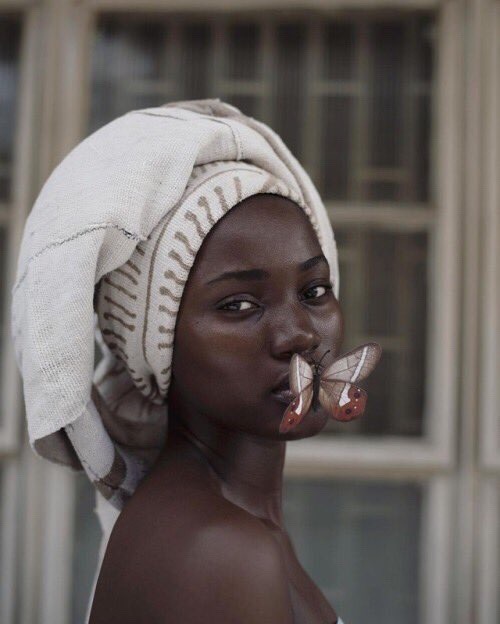
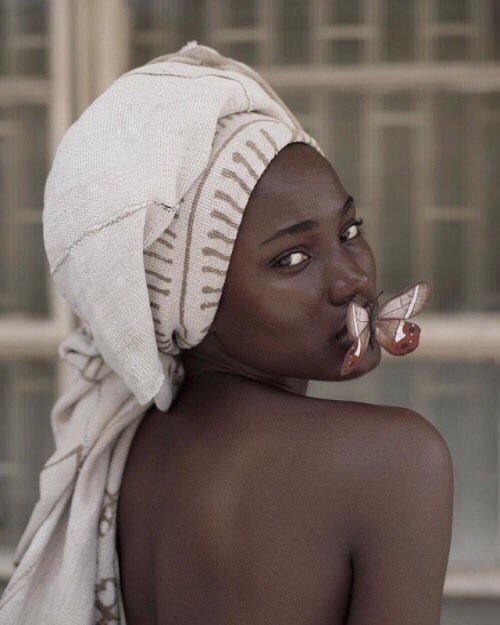
Photographed by Dola Posh
18K notes
·
View notes
Text
Hello and happy Pride Month everyone ! 🏳️🌈
As promised, I am going to talk about an important lesbian in history everyday. And this first post is about one of my favourite :



Renée Vivien !
I have seen some people talk about her here but she clearly isn’t as famous as she should be, and she deserves way more recognition!
Renée Vivien, whose birth name is Pauline Mary Tam, was a British writer poetess, who wrote her poetry (and most of her works) in french ; born in 1877, she died in 1909, at only 32 years old.
Renée was openly a lesbian, and she never tried to hide it despite the society she lived in being extremely homophobic and considering homosexuality as an illness. In her poetry, she mentions her love for women a lot, and wrote a lot of love poems for several of her lovers. This even earned her the nickname “Sappho 1900”. ("Sappho 1900, Sappho cent pour cent").
Of Sappho, she was by the way a huge fan : in 1903, she published the work "Sappho", in which the poet's Greek texts are followed by a French translation, as well as verses by Renée Vivien, which thus "completes" the remaining fragments of Sappho's writings. This collection greatly helped to anchor Sappho's work and her identity as a lesbian woman in our culture.
Her work consists of :
Twelve collections of poems, totalling more than 500 poems
Several translations of Greek poetesses (including Sappho)
Seven books of prose
Around ten novels (written under various pseudonyms)
A posthumously published collection of short Gothic tales (written in English this time)
A book about Anne Boleyn's life
It is also possible to read her diary and the letters she exchanged with her lovers, friends and other personalities of her time, including Natalie Clifford Barney, Colette, Kérimé Turkhan Pacha and others.




Pauline studied both in Paris and in London, then decided, once she came of age, to come and settle in Paris. She published her first collection,"Études et Préludes" in 1901, under the pseudonym R.Vivien. This pseudonym later became René Vivien (the male version of Renée) then Renée Vivien, the name under which she will be remembered. We can easily guess that she first chose these neutral then masculine pseudonyms to be able to write and be published despite the misogyny and homophobia of her time, especially given the themes exploited in her writings.
Sadness, death, ancient Greece, love, despair, solitude and love are the most recurrent themes in Renée's poems. There is actually a poetry prize in her name, the Prix Renée Vivien, which rewards poets whose themes and style are close to those of Renée Vivien.
Among Renée's best-known lovers is Natalie Clifford Barney, a famous writer and poet, with whom she had a relationship for several years before leaving her, tired of her infidelities. It is said that Natalie never accepted this breakup and tried until the end to get her back by all means, sending her love letters even years after.
Renée then had a relationship of more than six years with the rich Baroness Hélène de Zuylen, married and mother of two children, with whom she traveled extensively around the world and collaborated on the writing of several works (under the collective pseudonym Paule Riversdale). In a letter to her friend Jean Charles-Brun, Renée admitted that she considered herself married to Hélène.
While still living with the Baroness, she received a letter from a mysterious admirer, Kérimé Turkhan Pacha. What followed was an intense four-year epistolary relationship, interspersed with brief clandestine meetings. In 1908, however, Kérimé, the wife of a Turkish diplomat, put an end to their relationship when she had to follow her husband to St. Petersburg. This break-up probably contributed to Renée's tragic end.
The writer was in deep psychological distress, which only worsened from 1908 onwards. Alcoholic and suicidal, she began refusing to eat properly, and attempted suicide with laudanum. After this failed suicide attempt, she contracted pleurisy, which left her very weak, and then chronic gastritis due to her alcohol abuse. She gradually fell into anorexia, and, with her limbs paralyzed by multiple neuritis, she died on November 18, 1909, aged just 32. Her death was attributed to "pulmonary congestion", probably due to pneumonia complicated by alcohol and anorexia.
After her death, intellectuals, artists and newspapers, out of lesbophobia, tried to make her forgotten by the literary world, describing her as a woman of evil and damnation, perverse and cruel, going so far as to invent for her a life of crime, debauchery, orgies with married women, violence and cocaine consumption.
Today, Renée Vivien's name is no longer known to the general public, and is never mentioned alongside those of great ans famous poets such as Arthur Rimbaud or Charles Baudelaire, despite her gorgeous poetry, her immense talent and fascinating work.
She's personally my favourite, and not only because she was a lesbian. Her poetry is the most beautiful, interesting and deep poetry I have ever seen. She deserves to be as famous as Victor Hugo or Paul Eluard (and even more famous, in my opinion lol).
Here is one of her poems, with its english translation :


A link to some of her poems (in french but you can use a translator) ;
And two links with some of her poems translated into english : 1 and 2.
You should totally buy and read her books and poems, I have them and they're amazing!!! I'll post more translations of her poems in the future for those interested.
Anyway, thanks for reading and see you tomorrow for the second post!
102 notes
·
View notes
Text
Hello and happy Pride Month everyone ! 🏳️🌈
As promised, I am going to talk about an important lesbian in history everyday. And this first post is about one of my favourite :



Renée Vivien !
I have seen some people talk about her here but she clearly isn’t as famous as she should be, and she deserves way more recognition!
Renée Vivien, whose birth name is Pauline Mary Tam, was a British writer poetess, who wrote her poetry (and most of her works) in french ; born in 1877, she died in 1909, at only 32 years old.
Renée was openly a lesbian, and she never tried to hide it despite the society she lived in being extremely homophobic and considering homosexuality as an illness. In her poetry, she mentions her love for women a lot, and wrote a lot of love poems for several of her lovers. This even earned her the nickname “Sappho 1900”. ("Sappho 1900, Sappho cent pour cent").
Of Sappho, she was by the way a huge fan : in 1903, she published the work "Sappho", in which the poet's Greek texts are followed by a French translation, as well as verses by Renée Vivien, which thus "completes" the remaining fragments of Sappho's writings. This collection greatly helped to anchor Sappho's work and her identity as a lesbian woman in our culture.
Her work consists of :
Twelve collections of poems, totalling more than 500 poems
Several translations of Greek poetesses (including Sappho)
Seven books of prose
Around ten novels (written under various pseudonyms)
A posthumously published collection of short Gothic tales (written in English this time)
A book about Anne Boleyn's life
It is also possible to read her diary and the letters she exchanged with her lovers, friends and other personalities of her time, including Natalie Clifford Barney, Colette, Kérimé Turkhan Pacha and others.




Pauline studied both in Paris and in London, then decided, once she came of age, to come and settle in Paris. She published her first collection,"Études et Préludes" in 1901, under the pseudonym R.Vivien. This pseudonym later became René Vivien (the male version of Renée) then Renée Vivien, the name under which she will be remembered. We can easily guess that she first chose these neutral then masculine pseudonyms to be able to write and be published despite the misogyny and homophobia of her time, especially given the themes exploited in her writings.
Sadness, death, ancient Greece, love, despair, solitude and love are the most recurrent themes in Renée's poems. There is actually a poetry prize in her name, the Prix Renée Vivien, which rewards poets whose themes and style are close to those of Renée Vivien.
Among Renée's best-known lovers is Natalie Clifford Barney, a famous writer and poet, with whom she had a relationship for several years before leaving her, tired of her infidelities. It is said that Natalie never accepted this breakup and tried until the end to get her back by all means, sending her love letters even years after.
Renée then had a relationship of more than six years with the rich Baroness Hélène de Zuylen, married and mother of two children, with whom she traveled extensively around the world and collaborated on the writing of several works (under the collective pseudonym Paule Riversdale). In a letter to her friend Jean Charles-Brun, Renée admitted that she considered herself married to Hélène.
While still living with the Baroness, she received a letter from a mysterious admirer, Kérimé Turkhan Pacha. What followed was an intense four-year epistolary relationship, interspersed with brief clandestine meetings. In 1908, however, Kérimé, the wife of a Turkish diplomat, put an end to their relationship when she had to follow her husband to St. Petersburg. This break-up probably contributed to Renée's tragic end.
The writer was in deep psychological distress, which only worsened from 1908 onwards. Alcoholic and suicidal, she began refusing to eat properly, and attempted suicide with laudanum. After this failed suicide attempt, she contracted pleurisy, which left her very weak, and then chronic gastritis due to her alcohol abuse. She gradually fell into anorexia, and, with her limbs paralyzed by multiple neuritis, she died on November 18, 1909, aged just 32. Her death was attributed to "pulmonary congestion", probably due to pneumonia complicated by alcohol and anorexia.
After her death, intellectuals, artists and newspapers, out of lesbophobia, tried to make her forgotten by the literary world, describing her as a woman of evil and damnation, perverse and cruel, going so far as to invent for her a life of crime, debauchery, orgies with married women, violence and cocaine consumption.
Today, Renée Vivien's name is no longer known to the general public, and is never mentioned alongside those of great ans famous poets such as Arthur Rimbaud or Charles Baudelaire, despite her gorgeous poetry, her immense talent and fascinating work.
She's personally my favourite, and not only because she was a lesbian. Her poetry is the most beautiful, interesting and deep poetry I have ever seen. She deserves to be as famous as Victor Hugo or Paul Eluard (and even more famous, in my opinion lol).
Here is one of her poems, with its english translation :


A link to some of her poems (in french but you can use a translator) ;
And two links with some of her poems translated into english : 1 and 2.
You should totally buy and read her books and poems, I have them and they're amazing!!! I'll post more translations of her poems in the future for those interested.
Anyway, thanks for reading and see you tomorrow for the second post!
102 notes
·
View notes
Photo

Photo of two women without headscarves, their faces obscured, kissing in front of the Freedom Tower in Tehran.
Happy pride month! 🏳️🌈
Source: Twitter/ICHRI
1K notes
·
View notes
Text
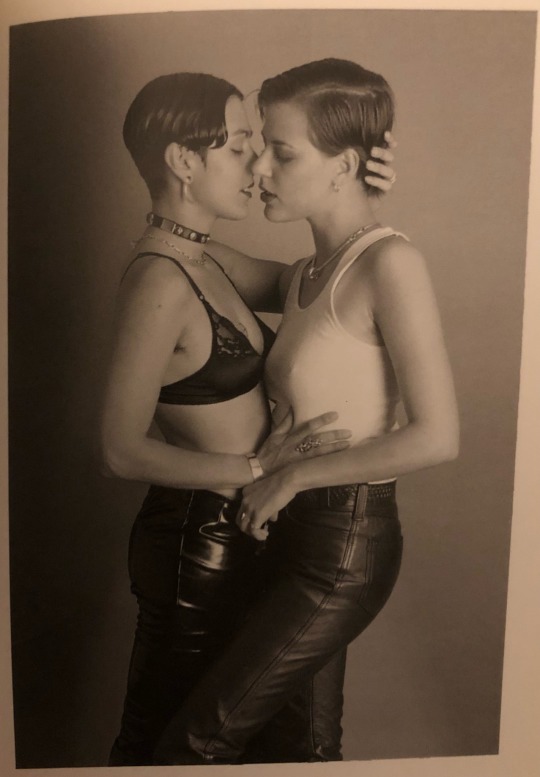
Source: Girls’ Night Out, by Chloe Atkins
2K notes
·
View notes
Photo

Stevie onstage at the JFK Stadium in Philadelphia, PA - July, 1978.
2K notes
·
View notes
Text
Hello and happy Pride Month everyone ! 🏳️🌈
As promised, I am going to talk about an important lesbian in history everyday. And this first post is about one of my favourite :



Renée Vivien !
I have seen some people talk about her here but she clearly isn’t as famous as she should be, and she deserves way more recognition!
Renée Vivien, whose birth name is Pauline Mary Tam, was a British writer poetess, who wrote her poetry (and most of her works) in french ; born in 1877, she died in 1909, at only 32 years old.
Renée was openly a lesbian, and she never tried to hide it despite the society she lived in being extremely homophobic and considering homosexuality as an illness. In her poetry, she mentions her love for women a lot, and wrote a lot of love poems for several of her lovers. This even earned her the nickname “Sappho 1900”. ("Sappho 1900, Sappho cent pour cent").
Of Sappho, she was by the way a huge fan : in 1903, she published the work "Sappho", in which the poet's Greek texts are followed by a French translation, as well as verses by Renée Vivien, which thus "completes" the remaining fragments of Sappho's writings. This collection greatly helped to anchor Sappho's work and her identity as a lesbian woman in our culture.
Her work consists of :
Twelve collections of poems, totalling more than 500 poems
Several translations of Greek poetesses (including Sappho)
Seven books of prose
Around ten novels (written under various pseudonyms)
A posthumously published collection of short Gothic tales (written in English this time)
A book about Anne Boleyn's life
It is also possible to read her diary and the letters she exchanged with her lovers, friends and other personalities of her time, including Natalie Clifford Barney, Colette, Kérimé Turkhan Pacha and others.




Pauline studied both in Paris and in London, then decided, once she came of age, to come and settle in Paris. She published her first collection,"Études et Préludes" in 1901, under the pseudonym R.Vivien. This pseudonym later became René Vivien (the male version of Renée) then Renée Vivien, the name under which she will be remembered. We can easily guess that she first chose these neutral then masculine pseudonyms to be able to write and be published despite the misogyny and homophobia of her time, especially given the themes exploited in her writings.
Sadness, death, ancient Greece, love, despair, solitude and love are the most recurrent themes in Renée's poems. There is actually a poetry prize in her name, the Prix Renée Vivien, which rewards poets whose themes and style are close to those of Renée Vivien.
Among Renée's best-known lovers is Natalie Clifford Barney, a famous writer and poet, with whom she had a relationship for several years before leaving her, tired of her infidelities. It is said that Natalie never accepted this breakup and tried until the end to get her back by all means, sending her love letters even years after.
Renée then had a relationship of more than six years with the rich Baroness Hélène de Zuylen, married and mother of two children, with whom she traveled extensively around the world and collaborated on the writing of several works (under the collective pseudonym Paule Riversdale). In a letter to her friend Jean Charles-Brun, Renée admitted that she considered herself married to Hélène.
While still living with the Baroness, she received a letter from a mysterious admirer, Kérimé Turkhan Pacha. What followed was an intense four-year epistolary relationship, interspersed with brief clandestine meetings. In 1908, however, Kérimé, the wife of a Turkish diplomat, put an end to their relationship when she had to follow her husband to St. Petersburg. This break-up probably contributed to Renée's tragic end.
The writer was in deep psychological distress, which only worsened from 1908 onwards. Alcoholic and suicidal, she began refusing to eat properly, and attempted suicide with laudanum. After this failed suicide attempt, she contracted pleurisy, which left her very weak, and then chronic gastritis due to her alcohol abuse. She gradually fell into anorexia, and, with her limbs paralyzed by multiple neuritis, she died on November 18, 1909, aged just 32. Her death was attributed to "pulmonary congestion", probably due to pneumonia complicated by alcohol and anorexia.
After her death, intellectuals, artists and newspapers, out of lesbophobia, tried to make her forgotten by the literary world, describing her as a woman of evil and damnation, perverse and cruel, going so far as to invent for her a life of crime, debauchery, orgies with married women, violence and cocaine consumption.
Today, Renée Vivien's name is no longer known to the general public, and is never mentioned alongside those of great ans famous poets such as Arthur Rimbaud or Charles Baudelaire, despite her gorgeous poetry, her immense talent and fascinating work.
She's personally my favourite, and not only because she was a lesbian. Her poetry is the most beautiful, interesting and deep poetry I have ever seen. She deserves to be as famous as Victor Hugo or Paul Eluard (and even more famous, in my opinion lol).
Here is one of her poems, with its english translation :


A link to some of her poems (in french but you can use a translator) ;
And two links with some of her poems translated into english : 1 and 2.
You should totally buy and read her books and poems, I have them and they're amazing!!! I'll post more translations of her poems in the future for those interested.
Anyway, thanks for reading and see you tomorrow for the second post!
#lesbian#renée vivien#renee vivien#pride#pride month#poetry#french poetry#poésie française#poésie#female homosexuality#female homosexual#lesbian history#lesbian artist
102 notes
·
View notes
Text
Happy Pride! Let’s get some things str8
Trans people had nothing to do with the first pride 😁
Black Butch Cis lesbian Stormé DeLarverie started threw the first punch that started the stonewall rebellion. I say rebellion and not riot because that is how Stormé herself referred to it:
“It was a rebellion, it was an uprising, it was a civil rights disobedience – it wasn't no damn riot.”
Two cis gays and two cis lesbians, Craig Rodwell. Fred Sargeant, Ellen Broidy, and Linda Rhodes, proposed Pride. And then Cis bisexual Brenda Howard organized it. She is even called “the mother of Pride.”
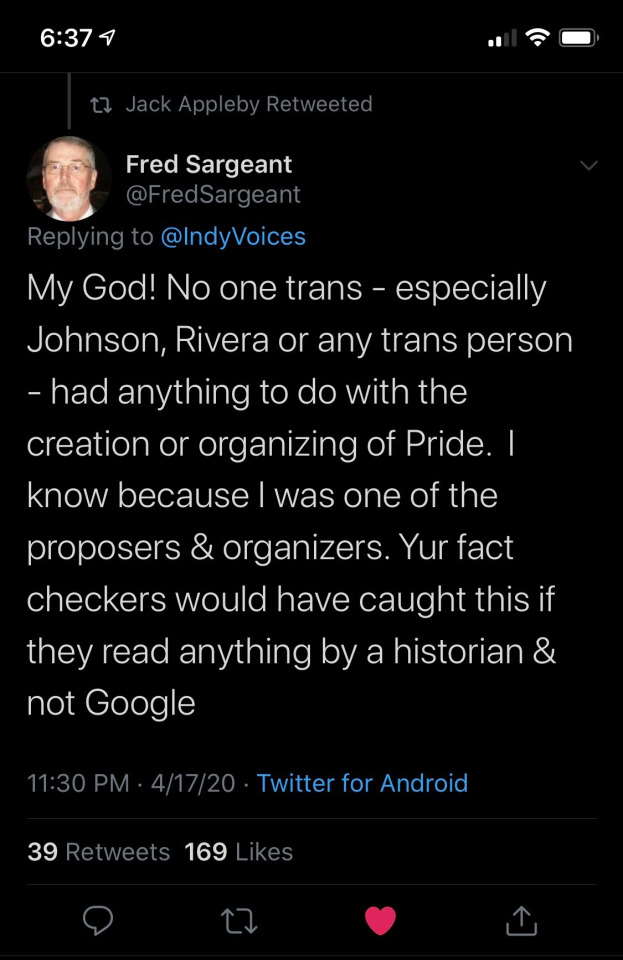

Furthermore Marsha P Johnson was NOT trans.

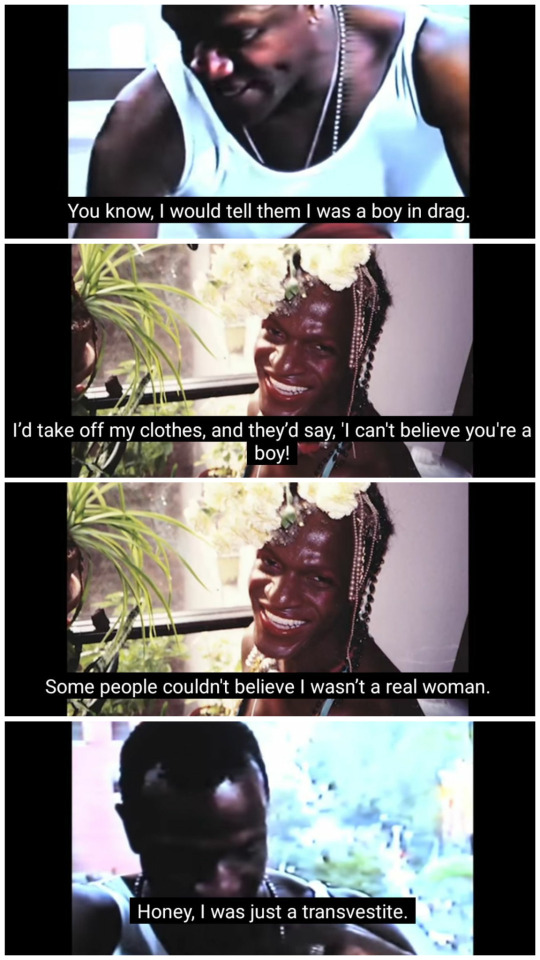
And Sylvia Rivera doesn’t like being called trans.

Erasing the accomplishments of gay men, lesbians, and bisexuals to fit your narrative is not cute or “woke.” It’s disrespectful and downright homophobic. All of you spreading misinformation should be ashamed.
3K notes
·
View notes
